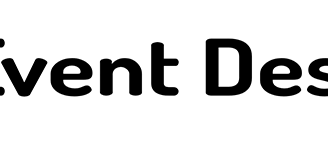

This process can help ensure the success of your conference. If you need more specific advice or details, please contact us.


Determine the meeting goals
Clear purpose: Set specific goals for the meeting, such as information dissemination, product launch, or team building.
Develop metrics: Define success criteria, such as number of participants, satisfaction, etc.
Cost estimation: List all possible expenses, including venue, equipment, catering, materials, and personnel costs.
Fund allocation: Allocate budget according to importance and reserve emergency funds.
Choose a date: Consider the industry calendar and avoid holidays and major events.
Venue evaluation: Investigate multiple venues, considering capacity, facilities, technical support, and transportation convenience.


Content planning Design the agenda.
Agenda arrangement: Plan the schedule, including opening, speeches, discussions and breaks.
Invite guests: Identify and contact the speakers, provide the topic and speaking time requirements.
Design interactive sessions: Plan Q&A, discussion groups or workshops to enhance participation.
Prepare materials: Prepare a conference materials package, including the schedule, speaker information and related materials.
Promotion channels: Promote through various means such as email, social media, industry websites, etc.
Registration management: Set up an online registration system to facilitate the counting of participants.


Execution and Evaluation On-site management.
Technical preparation: Test equipment (projector, audio, Wi-Fi, etc.) in advance to ensure smooth operation.
Registration reception: Set up a registration desk and arrange staff to guide participants to enter.
Catering arrangements: Confirm the services of the catering company in advance to ensure that various dietary needs are met.
On-site coordination: Ensure that the time of catering services is coordinated with the agenda.
Collect feedback: Distribute questionnaires after the meeting to understand participants' evaluation of the content, organization and services.
Summary report: Analyze feedback data, identify improvement opportunities, and provide reference for future meetings.
© 2024 Elite Event Designs LLC. All Rights Reserved.

Why Choose Elite Event Designs?
At Elite Event Designs LLC, we are committed to bringing your vision to life with creativity and attention to detail. Our experienced team works closely with you to ensure that every aspect of your event is handled with care, resulting in a seamless and memorable experience.
Our Services:
🎉 Event Planning
🌼 Wedding Coordination
🎈 Party Design
📅 Corporate Events
🥳 Venue Selection
Your Partner for Unforgettable Events!
Contact Details:
📱 Phone: (910) 767-0777
✉️ Email: info@eliteeventdesigns.blog
🏠 Address:
1622 Bingham Dr
Fayetteville, NC 28304
